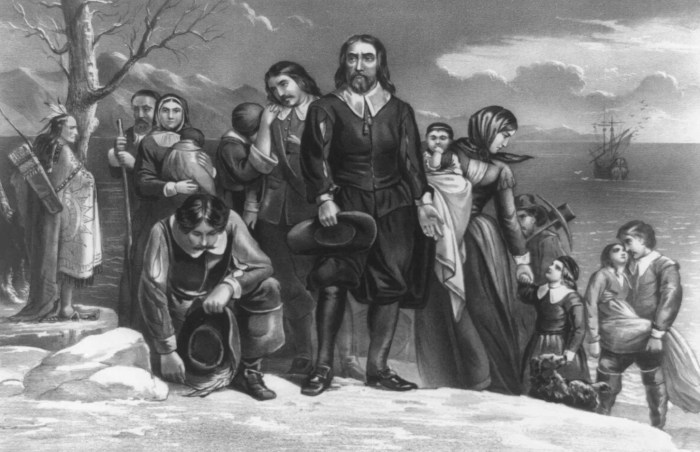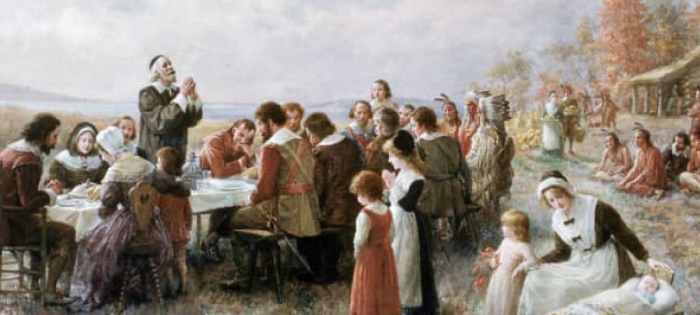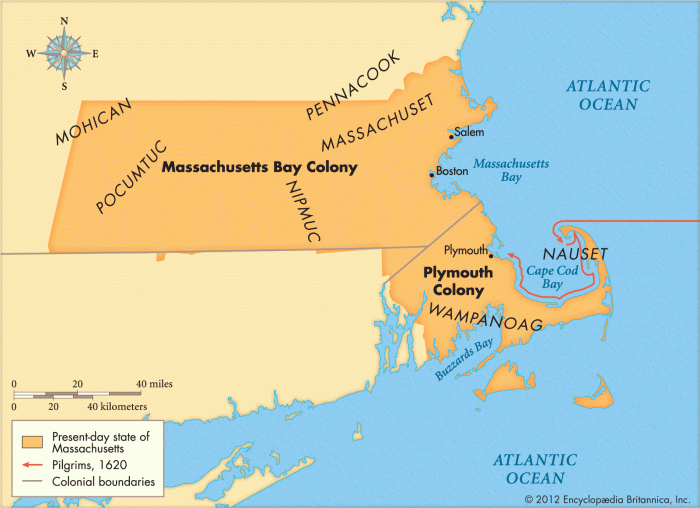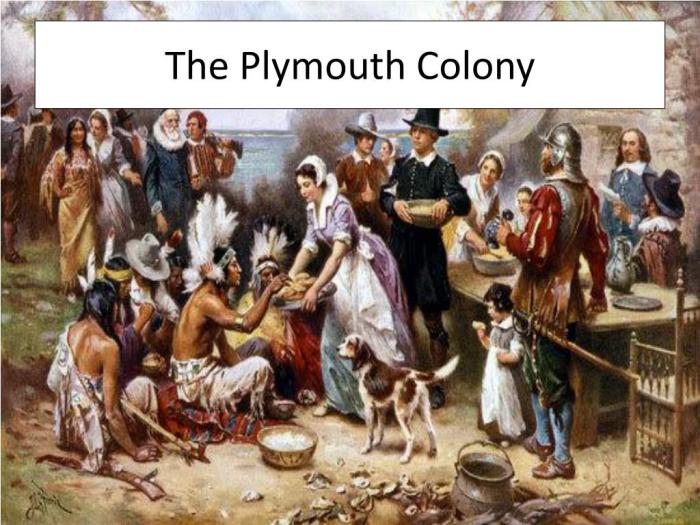The plymouth colony set an important precedent in that it – The Plymouth Colony, established in 1620 by a group of English Puritans seeking religious freedom, set an important precedent for the development of American democracy, religious liberty, and community.
Through its foundational documents, social structures, and interactions with Native American tribes, the colony established principles that would shape the future of the United States.
The Plymouth Colony: A Precedent for Self-Governance and Religious Freedom

The Plymouth Colony, established in 1620 by the Pilgrims, set a significant precedent in American history. Its founding principles and practices laid the groundwork for self-governance, religious freedom, and the development of democratic ideals.
The Mayflower Compact: A Framework for Self-Governance, The plymouth colony set an important precedent in that it
The Mayflower Compact, signed by the Pilgrims before landing at Plymouth, established a framework for self-governance based on the principles of majority rule and consent of the governed. It provided for the election of officials and the establishment of laws to regulate the colony’s affairs.
- Key Provisions:
- Establishment of a civil body politic
- Election of officials
- Enactment of laws
- Majority rule
- Influence:The Mayflower Compact served as a model for subsequent colonial governments and the development of American democracy.
Religious Freedom and the Separation of Church and State
The Plymouth Colony also played a pivotal role in establishing religious freedom and the separation of church and state. The Pilgrims, who had fled religious persecution in England, sought to create a society where individuals could practice their faith freely.
- Role of the Colony:The colony leaders, including Governor William Bradford, promoted tolerance and discouraged religious persecution.
- Historical Accounts:Examples include the colony’s refusal to expel Roger Williams, a minister who held unorthodox religious views, and the establishment of a system of religious toleration.
- Impact:The precedent set by the Plymouth Colony had a profound influence on the development of religious liberty in the United States.
Economic and Social Structures: A Model for Community
The Plymouth Colony developed a unique set of economic and social structures that fostered a sense of community and cooperation among the settlers.
- Economic Structures:
- Communal farming and land ownership
- Emphasis on self-sufficiency
- Bartering and trade
- Social Structures:
- Strong family ties
- Community gatherings and celebrations
- Mutual support and assistance
- Challenges and Successes:The colony faced challenges such as food shortages and conflicts with Native American tribes, but it also achieved significant successes in establishing a stable and prosperous society.
Native American Relations: Cooperation and Conflict
The Plymouth Colony’s relationship with the Native American tribes in the region was complex and multifaceted.
- Cooperative Interactions:
- Trade and exchange of goods
- Alliances for mutual protection
- Cultural exchange
- Conflicts:
- Competition for resources
- Cultural misunderstandings
- King Philip’s War (1675-1676)
- Impact:These relationships shaped the colony’s survival and the broader history of Native American-settler relations in North America.
User Queries: The Plymouth Colony Set An Important Precedent In That It
What was the significance of the Mayflower Compact?
The Mayflower Compact was a foundational document that established principles of self-governance and representation in the Plymouth Colony.
How did the Plymouth Colony contribute to religious freedom in the United States?
The colony’s leaders promoted religious tolerance and established a separation of church and state, setting a precedent for religious liberty in the future United States.
What were the economic and social structures of the Plymouth Colony?
The colony established a communal system of land ownership and labor, fostering a sense of community and cooperation among the settlers.


